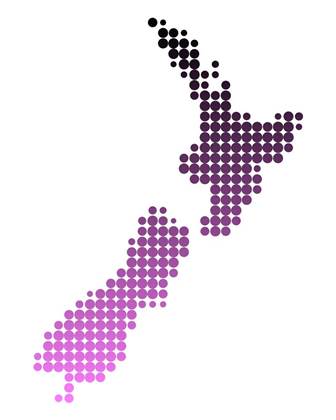The New Zealand Government has entered into negotiations with Telecom New Zealand and Vodafone for the provision of publicly funded, improved broadband services to rural areas.

The Rural Broadband Initiative, or RBI, was expected to cost NZ$285 million and involved the delivery of fixed wireless and wired service to 252,000 customers in country areas.
Telecom was expected to extend its fibre-optic network to rural areas, alongside 154 new cell phone towers.
Some rural customers would be able to get fibre to the farm gate. Others could connect via fixed wireless, ADSL2+ and mobile broadband using 4G technology.
According to New Zealand Communications Minister Steven Joyce, the network would have "strict open access rules" to promote healthy competition in rural wholesale and retail broadband.
Negotiations between the NZ Government and the two companies will begin in the first quarter of this year, but the RBI roll-out is not due for completion until 2016.
If negotiations are not concluded by the first quarter of this year, the government may re-tender the RBI contract, Joyce said.
"There were two strong bids for the RBI by the OpenGate consortium and Telecom/Vodafone," said Paul Brislen, chief executive of the Telephone Users Association of New Zealand (TUANZ).
Brislen said the improved rural coverage for mobile telephony via Vodafone's network seemed to have swung the deal for Joyce, even though this was not a requirement for the RBI bidders.
By comparison, the bid made by the OpenGate consortium comprising of Kordia, FX Networks and wireless operator Woosh promised 10Mbps or faster connections to 83 percent of rural New Zealand using fibre-optic and LTE (4G) services.
OpenGate also said it would have the access ready within two years with retail pricing starting at NZ$60 a month for the service.
Kordia CEO Geoff Hunt criticised the Government's decision as one that would perpetuate "the same old duopoly services that continue to under-deliver and hold rural New Zealand hostage".
"We should remember that this was supposed to be the rural broadband initiative and not the rural mobile initiative," he stated today.
"Sadly, the Government has chosen to invest in what they know - copper and 3G, both of them well down the path to obsolescence."
The New Zealand Government said it would provide NZ$48 million to the project. The remainder of the build was to be funded by a revamped Universal Service Obligation charge, levied from the telco industry.
In the past, New Zealand's Telecommunications Service Obligation levy was paid to Telecom by other telcos, and assessed on market share.
Vodafone bore the brunt of the TSO levy due to its large number of mobile customers, paying Telecom tens of millions of dollars every year. Telecom warned its shareholders last year that it risked foregoing NZ$56 million due to the TSO levy being replaced with a charge for RBI.
Liz Tay contributed to this report.


_(23).jpg&h=140&w=231&c=1&s=0)

.png&h=140&w=231&c=1&s=0)






 iTnews Executive Retreat - Security Leaders Edition
iTnews Executive Retreat - Security Leaders Edition
 iTnews Benchmark Awards 2026
iTnews Benchmark Awards 2026
 iTnews Cloud Covered Breakfast Summit
iTnews Cloud Covered Breakfast Summit
 The 2026 iAwards
The 2026 iAwards












_(1).jpg&h=140&w=231&c=1&s=0)



